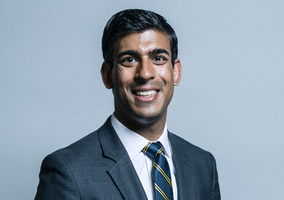Just as the general election was called last week, we at the Sheila McKechnie Foundation were putting the final touches on a new guide we’ve developed to help charity trustees navigate campaigning. Given the important role charities and their leaders play in public debate, we decided not to sit on it until it was perfectly designed and presented, but to publish an “undressed” version right now.
Navigating Charity Campaigning sets out a series of questions designed to help boards lay strong foundations for their organisation’s approach to campaigning – both now, in the immediate run up to the election, and for the years that follow.
It responds to our survey of trustees, conducted in partnership with Governance & Leadership magazine last year, which found that support for campaigning is high, but levels of confidence amongst trustees do not match. Three quarters told us they would welcome tools to help them develop and manage their approach to campaigning and speaking out.
Ways to drive change
Key to understanding this area is that there are many ways to drive change, just as there are many definitions of what campaigning is. There is no single or “right” way to do it. The Charity Commission doesn’t prescribe how charities should campaign, only that they work within the law and regulation. Yet, because it is a complex area – and one that has been contested in recent years – it can be hard to steer a clear path through.
There is risk and uncertainty in any activity and campaigning is, of course, no different. One uncertainty that both trustees and campaigners often confront is that, in a turbulent political environment, the context for your issue can shift over time. Activity you planned months ago can suddenly land very differently if the subject has become particularly high-profile. That doesn’t mean you should stop – just be clear about how decisions are made in these circumstances and that they are documented.
Another common concern we hear is when a charity’s own policy position is similar to that of a political party. This isn’t something to worry about unduly. The Charity Commission itself says: “It is entirely acceptable for the charity to continue to campaign on that issue and to advocate its policy as long as it makes clear its independence from any political party advocating the same policy.”
Laying the groundwork
As the general election gets underway, and we face a potential change of government in the next five weeks, now is the time to lay solid groundwork for the campaign approach your charity will take forward for the next five years. There are no right answers, but being clear about some of this early on can help avoid unnecessary difficulties and give staff greater confidence as they plan and respond.
Whether you are making change loudly or quietly, alone or in partnership, whether you are pursuing national policy change or ensuring that the experience of the people you work with is heard, the important thing is to be clear about how it helps you deliver your charitable purposes.
And let’s keep in mind the words of Charity Commission Chair Orlando Fraser when he said: “I will robustly defend charities’ right to campaign lawfully, even where such campaigning covers sensitive or politically divisive ground” – a sentiment he has echoed in the run-up to the election.
The risks associated with campaigning are often trustees’ first thought, especially at an election time, but it’s just as important to bear in mind the risk in not speaking up. In fact, it might be impossible to effectively pursue your objectives without recourse to campaigning or political activity.
There is certainly demand for charities to speak up more, as we outlined in the Charity Reform Group’s Speak Up, We Need You! report. We understand that this can feel exposing, particularly in the current environment, and the governance around it can seem confusing. But the people and places you work with, your donors, and your supporters may regard failure to campaign as a significant problem.
We hope that during this election one of charities’ oldest and most fundamental roles – being vehicles of change and reform – is not avoided for the sake of a considered conversation.
Related Articles












